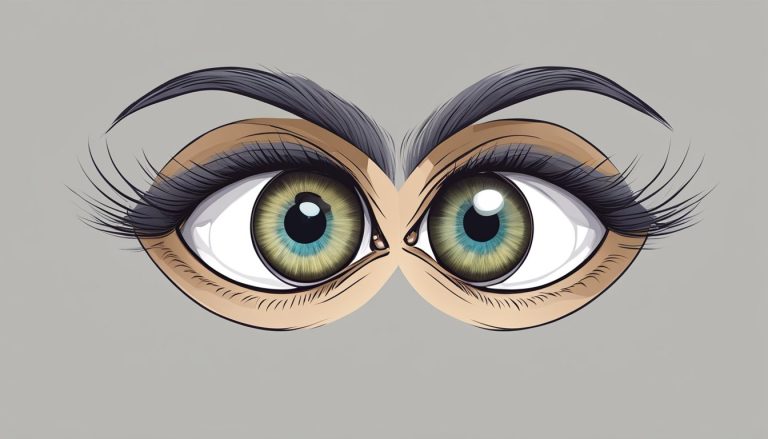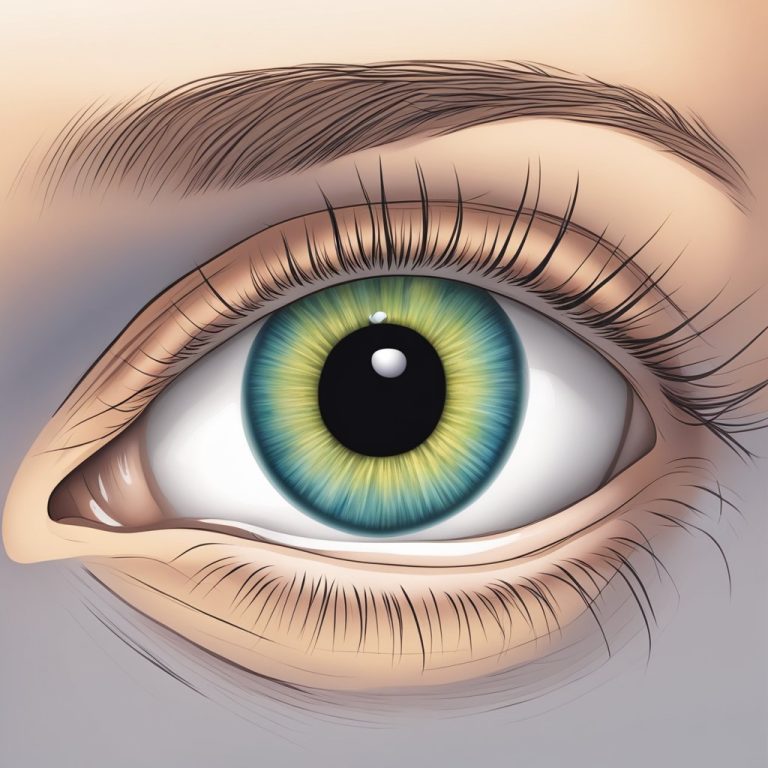Can Lack of Sleep Cause Yellow Eyes?
Can Lack of Sleep Cause Yellow Eyes? Exploring the Link between Sleep Deprivation and Eye Discoloration
If you’ve ever woken up with yellow eyes, you might have wondered if lack of sleep was the culprit. While it’s not a common symptom of sleep deprivation, it’s not entirely impossible.
Yellow eyes, or jaundice, can be caused by a variety of factors, including liver problems, medical conditions, and lifestyle choices.
In this article, we’ll explore whether lack of sleep can cause yellow eyes, what other factors might contribute to yellowing of the eyes, and what you can do to prevent it.
Impact of Sleep Deprivation on Eye Health
Lack of sleep can have a significant impact on your overall health, including your eye health. When you don’t get enough sleep, your eyes may become dry, itchy, and red.
This is because your eyes need to be lubricated with tears, which are produced during sleep. Without enough sleep, your body may not produce enough tears, leading to dry eyes.
Additionally, lack of sleep can cause eye strain, headaches, and even vision problems.
Medical Conditions Associated With Yellow Eyes
While lack of sleep is not a common cause of yellow eyes, there are several medical conditions that can lead to jaundice. These include liver disease, hepatitis, gallstones, and pancreatitis.
Certain medications, such as acetaminophen, can also cause yellowing of the eyes.
Key Takeaways
- Lack of sleep is not a common cause of yellow eyes, but it can contribute to overall eye health problems.
- Yellow eyes, or jaundice, can be caused by a variety of factors, including liver problems, medical conditions, and certain medications.
- If you’re experiencing yellow eyes, it’s important to see a doctor to determine the underlying cause and receive appropriate treatment.
Impact of Sleep Deprivation on Eye Health
Lack of sleep can have a significant impact on your eye health. In fact, it can even cause yellowing of the eyes in some cases. Here are some important things to know about the link between sleep deprivation and eye health.
Link Between Lack of Sleep and Yellow Eyes
Yellow eyes, also known as jaundice, can be caused by an excess of bilirubin in the blood. Bilirubin is a yellow pigment that is produced when red blood cells break down.
Normally, the liver processes bilirubin and removes it from the body. However, when the liver is not functioning properly, bilirubin can build up in the blood and cause yellowing of the skin and eyes.
One of the factors that can contribute to liver dysfunction is sleep deprivation. Studies have shown that chronic lack of sleep can lead to liver damage and dysfunction, which can in turn cause jaundice and yellowing of the eyes.
Symptoms and Signs of Sleep-Related Eye Conditions
In addition to jaundice, lack of sleep can also cause a number of other eye-related symptoms and conditions. For example, sleep deprivation can cause dark circles under the eyes, itching, and fatigue.
It can also lead to dry eyes and blurry vision.
Sleep apnea, a common sleep disorder characterized by interrupted breathing during sleep, can also have a negative impact on eye health. Sleep apnea has been linked to an increased risk of glaucoma, a condition that damages the optic nerve and can lead to vision loss.
Preventing Eye Health Issues Through Better Sleep
Fortunately, there are steps you can take to prevent eye health issues related to sleep deprivation.
The most important step is to prioritize your sleep and make sure you are getting enough of it each night. Most adults need between 7 and 9 hours of sleep per night to feel rested and refreshed.
Other lifestyle factors can also impact your sleep and eye health. For example, reducing stress and anxiety, avoiding caffeine and alcohol before bed, and maintaining a healthy blood pressure can all help improve the quality of your sleep.
Medical Conditions Associated With Yellow Eyes
If you notice the whites of your eyes turning yellow, it could be a sign of an underlying medical condition. Yellow eyes, also known as scleral icterus, can be caused by a variety of health issues. In this section, we’ll explore some of the medical conditions associated with yellow eyes and what you should know about them.
Liver-Related Diseases and Yellowing of the Eyes
One of the most common causes of yellow eyes is liver-related diseases. The liver is responsible for filtering toxins from the body, and when it’s not functioning properly, it can lead to a buildup of bilirubin in the blood.
Bilirubin is a yellow pigment that can cause yellowing of the skin and eyes.
Liver-related diseases that can cause yellow eyes include:
- Cirrhosis: a condition in which the liver becomes scarred and can’t function properly.
- Hepatitis: inflammation of the liver, often caused by a viral infection.
- Alcohol-related liver disease: damage to the liver caused by excessive alcohol consumption.
Other Health Issues That Can Cause Yellow Eyes
Yellow eyes can also be caused by other health issues, such as:
- Anemia: a condition in which the body doesn’t have enough red blood cells.
- Gallstones: small, hard deposits that form in the gallbladder.
- Medications: certain medications can cause yellowing of the eyes as a side effect.
- Cancer: some types of cancer, such as pancreatic cancer, can cause yellowing of the eyes.
- Liver infection: infections such as malaria and hepatitis B and C can cause yellowing of the eyes.
- Pancreatitis: inflammation of the pancreas.
- Hemolytic anemia: a type of anemia in which red blood cells are destroyed faster than they can be produced.
- Sickle cell anemia: a genetic disorder that causes the red blood cells to be shaped like sickles.
- Blood transfusions: receiving a blood transfusion can sometimes cause yellowing of the eyes.
- Steroids: long-term use of steroids can cause yellowing of the eyes.
- Liver function: any condition that affects liver function can cause yellowing of the eyes, including liver transplant and sarcoidosis.
- Autoimmune diseases: diseases such as lupus and rheumatoid arthritis can cause yellowing of the eyes.
- Gilbert syndrome: a genetic disorder that affects the liver’s ability to process bilirubin.
- Type 2 diabetes: uncontrolled diabetes can cause yellowing of the eyes.
- Blood disorders: any disorder that affects the blood, such as sickle cell disease, can cause yellowing of the eyes.
Frequently Asked Questions
What health conditions can lead to the development of yellow eyes?
Yellow eyes can be a symptom of various health conditions, including jaundice, hepatitis, cirrhosis, and anemia. According to Buoy Health, yellow eyes can also be caused by subconjunctival hemorrhage, sarcoidosis, and alcohol use disorder. If you are experiencing yellowing of the eyes, it is important to consult a healthcare professional to determine the underlying cause.
Are yellow eyes a possible symptom of nutrient deficiencies?
While yellow eyes are not typically associated with nutrient deficiencies, some studies suggest that a lack of vitamin B12 and folate may contribute to anemia, which can cause yellowing of the eyes. However, this is not a common cause of yellow eyes.
How might prolonged exposure to screens affect the coloration of the eyes?
Prolonged exposure to screens can cause eye strain and fatigue, but it is unlikely to cause yellowing of the eyes. However, it is important to take regular breaks when using screens to reduce eye strain and fatigue.
Could significant stress influence the appearance of yellow in the eyes?
Stress can affect the body in various ways, but it is not typically associated with yellowing of the eyes. However, stress can cause eye strain and fatigue, which can contribute to other eye-related issues.
Is there a connection between hydration levels and the presence of yellow eyes?
Dehydration can cause various symptoms, including dry eyes and eye strain, but it is not typically associated with yellowing of the eyes. However, it is important to stay hydrated to maintain overall health.
What are effective methods for addressing discoloration in the eyes?
The most effective method for addressing discoloration in the eyes is to treat the underlying cause.
For example, if jaundice causes yellowing of the eyes, treat the underlying liver condition.
In some cases, eye drops or other treatments may be necessary to address discoloration.
It is important to consult a healthcare professional to determine the appropriate treatment plan.






